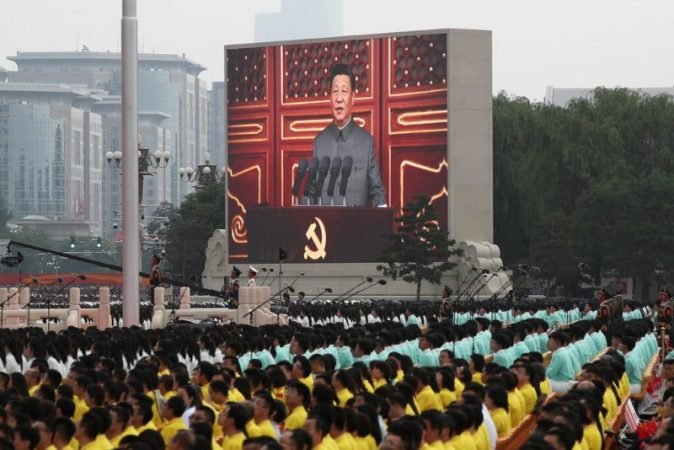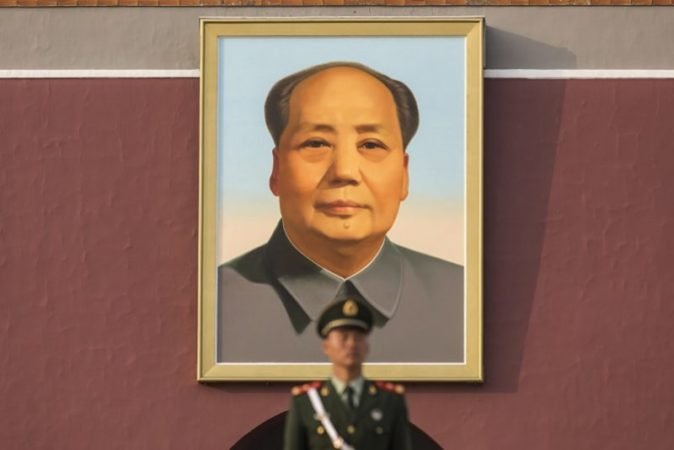The Tiananmen Square Speech: Communist Party of China turns 100

Chinese President, Mr Xi Jinping made global headlines after his strongly nationalist Tiananmen Square speech at the centenary celebration of the founding of the Communist Party of China.
The Celebration
Addressing a crowd of 70000 last Thursday at a carefully choreographed event, the President in his hour-long speech talked about the history of the country and how the Communist Party of China (CPC) has transformed it. The celebrations in the capital city began with dozens of military helicopters and jets flying in formation through Beijing’s skies, trailing flags and coloured smoke over Tiananmen Square, where 56 cannons representing the 56 ethnic groups of China were fired 100 times. The celebrations also included patriotic songs, speeches from high-ranking officials of the party, and jet flyovers forming the number ‘100’ commemorating the 100th anniversary of the formation of the CPC. At one point, the crowd also engaged by singing a song called “Without the Communist Party There Would Be No New China”.
Though the main celebration took place on July 1st, 2021, the preparation for this landmark occasion began much before. Performances, propaganda films, and ‘red tourism’ had been in full swing since April 2021.
Speech Overview
The party, when founded in 1921 by Mao Zedong had about a dozen members, and now, has a membership of a whopping 95 million.

Xi attributes China’s growth from a politically unstable, famine-struck land to the world’s second-largest economy to this very party, which was founded a hundred years ago. His speech carried a highly nationalistic tone and spoke of the party’s glorious journey and prospects. He declared that the party’s first centenary goal of “building a moderately prosperous society in all respects” had been achieved in the first 100 years, and now the country is moving towards the second goal of “building China into a great modern socialist country in all respects”.
The Chinese leader looking towards the future requested the next generation to take over the reign of the party and to “live up to the expectations of the times”. In his speech, he also talked about the modernization of the military to “world-class standards”, for it is one force that can guarantee the security of the nation.
Although the keynote speech made many points about the future and the past of the Communist party, it made national headlines because of Jinping’s harsh statement – “Anyone who dares to try will find their heads bashed bloody against a great wall of steel forged by over 1.4 billion Chinese people.” This statement, which was softened by the government’s English translators, was made regarding the sanctimonious preaching and apparent ‘bullying’ by Western powers and neighbouring countries on what China considers its internal matters – such as the human rights violations in the Xinjiang province, expansion in the South China Sea and the suppression of dissent in Hong Kong. “We have never bullied, oppressed, or subjugated the people of any other country, and we never will”, but “By the same token we will never allow anyone to bully, oppress, or subjugate us (China)”.
One of the most powerful Chinese leaders, second only to Mao Zedong also mentioned Taiwan and Hong Kong in his speech. China believes that Taiwan is a breakaway province of the former, and is bent on unification with its neighbour across the Taiwan Strait. This comes as a direct dig at the US, which provides Taiwan with military goods in case of Chinese aggression attempting to snatch the island’s sovereignty. Taipei was quick with its response to the speech and said “Beijing should introduce democratic reforms, such as party competition, and respect for human rights while behaving as a responsible regional player.”
The financial hub – Hong Kong which marked its handover anniversary on the same day as the party celebrations, was also referenced in the speech when Jinping said that both regions of Hong Kong and Macau retain a “high degree of autonomy”.

Takeaways
The second-largest economy in the world, with a land area of almost 10 million km² is a force to reckon with. The mention of international matters in the Tiananmen Square speech is just another way for the Dragon to say that it is not going to sit back until it gets what it wants. And although there was a streak of positivity at one point in the speech when the President said that “we are eager to learn whatever lessons we can from the achievements of other cultures, and welcome helpful suggestions and constructive criticism”, the rest of the speech was almost a warning to anyone who has ever criticized China on its expansionist policy and human rights violations. Jinping’s uncompromised stance on the Taiwan issue and determinacy to curb any attempt towards Taiwan independence is concerning. Taipei is a self-governed democratic island and with China’s historical claims and aims to ‘reunify’ it with the mainland, the use of force is seen as a possibility.
The Chinese leader during his mention of Hong Kong affirmed that the region enjoyed a high level of autonomy, but, it was the first time in 18 years that Hong Kong could not hold pro-democratic protests because of Beijing’s high police patrolling in the region.
China’s gleefully ambitious speech mentioned its upcoming plans for the region around it. The world needs to keep its eyes open for any developments.



















